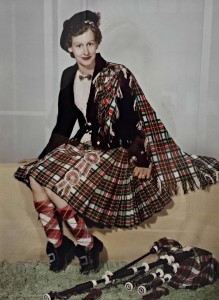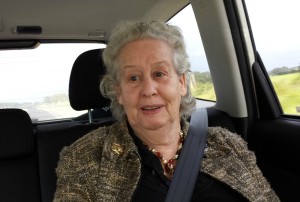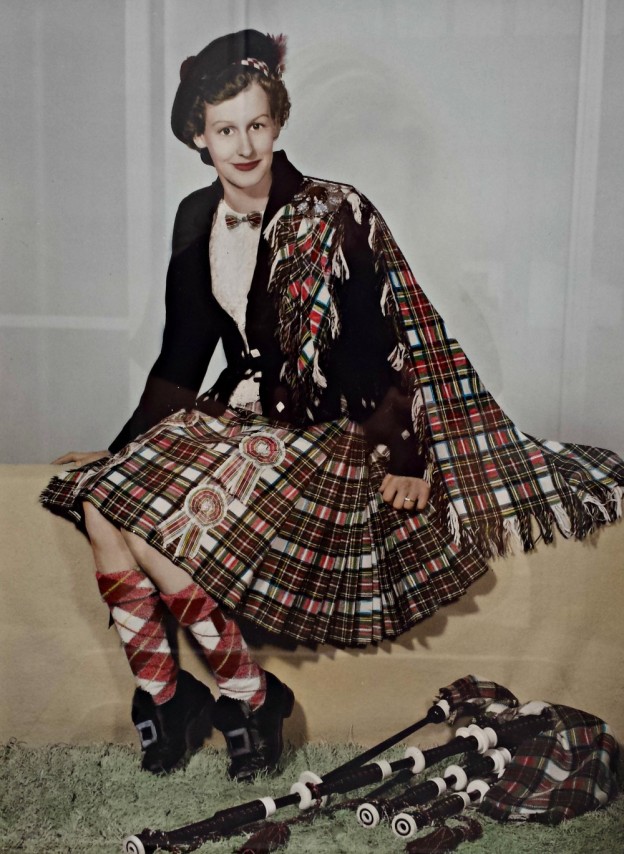In May of 2012, after years of knowing there was something seriously wrong and getting worse, my mum was diagnosed with Alzheimer’s Disease. And so began the long goodbye.
 She’d been saying farewell, in her own way, for a while by then. I think she knew there was a problem with her memory a long time before. Mum had taken to scrapbooking with zeal. No photo was safe, no font or cut-out spared. Every occasion was glued and arranged into a series of thick, heavy folders. They’d arrive in the post, unbidden: a scrapbook of my debut, a wonderful tradition that is still a source of fun in many country towns, complete with pressed flower arrangement; a book of my university days, of my 21st birthday party, my years at pony club. We all had books made for us. Great folders of preserved memory.
She’d been saying farewell, in her own way, for a while by then. I think she knew there was a problem with her memory a long time before. Mum had taken to scrapbooking with zeal. No photo was safe, no font or cut-out spared. Every occasion was glued and arranged into a series of thick, heavy folders. They’d arrive in the post, unbidden: a scrapbook of my debut, a wonderful tradition that is still a source of fun in many country towns, complete with pressed flower arrangement; a book of my university days, of my 21st birthday party, my years at pony club. We all had books made for us. Great folders of preserved memory.
Not all of them were correct. Names were mixed up, places not quite right. At the time I never thought much of it. They were simple errors. Looking back, perhaps those errors were an early sign. Certainly I think Mum’s need to revisit and spend so much time with old photographs and the ephemera she’d held on to were her way of chasing moments she felt were becoming elusive. Maybe I’m wrong about that. Maybe scrapbooking was simply a creative outlet. But in her subconscious…
It’s been vexing and hurtful to watch her decline. There have been times when I’ve been furious with Mum, believing her behaviour was deliberate instead of a symptom of disease. Since I left for university at 18, any return visit home was always accompanied with flutter and excitement. Then one trip, after 1400 kilometres on the road, Jim and I rocked home only to find the house locked and empty. Mum had forgotten we were coming and disappeared down the street.
 She began to miss birthdays, even though they were written in her diary. She became increasingly difficult to talk to on the phone. The same questions would be asked over and over. She’d forget what I did as a job, where I was living. Jim became “husband” then was wiped out all together. She’d lie. A lot and about anything in an attempt to cover up gaps that once were barely noticeable cracks but had widened into chasms. Oh, and she was angry. So very, very angry. We failed to tell her things. We didn’t call. We moved items, deliberately hid things from her. Everything that went wrong was us, not her. God, some of those moments hurt and I only had it when I phoned or visited. Poor Dad faced the brunt daily. The happy, bright woman we knew had been stolen from us. We buried our unspoken fear that she wasn’t coming back.
She began to miss birthdays, even though they were written in her diary. She became increasingly difficult to talk to on the phone. The same questions would be asked over and over. She’d forget what I did as a job, where I was living. Jim became “husband” then was wiped out all together. She’d lie. A lot and about anything in an attempt to cover up gaps that once were barely noticeable cracks but had widened into chasms. Oh, and she was angry. So very, very angry. We failed to tell her things. We didn’t call. We moved items, deliberately hid things from her. Everything that went wrong was us, not her. God, some of those moments hurt and I only had it when I phoned or visited. Poor Dad faced the brunt daily. The happy, bright woman we knew had been stolen from us. We buried our unspoken fear that she wasn’t coming back.
In January 2012 Jim and I moved to Melbourne, only a 5 hour drive from Mount Gambier. Not long after, Dad brought Mum over to visit. I thought we’d take her shopping – an activity she adored and could do for hours – but the DFO centre at South Wharf left her bewildered and, it seemed, a little bit frightened. The trip was a disaster. She barely moved from Dad’s side. Not a single shop interested her. The world was whirling too fast, everything was too strange. She may as well have been in Russia.
 Until that year, getting Mum to talk to her doctor about her condition had been an exercise in frustration. We hinted, but never anything more. How do you tell someone a fear like that? We wanted protect her from pain but the truth was we also wanted to shield ourselves. So we tiptoed around the subject. No one wanted to think about a diagnosis. No one wanted to hear the word Alzheimer’s. Without it, we still had hope. Once it became real there would be none. No cure. Only a worsening. Only more theft by a thing without conscience.
Until that year, getting Mum to talk to her doctor about her condition had been an exercise in frustration. We hinted, but never anything more. How do you tell someone a fear like that? We wanted protect her from pain but the truth was we also wanted to shield ourselves. So we tiptoed around the subject. No one wanted to think about a diagnosis. No one wanted to hear the word Alzheimer’s. Without it, we still had hope. Once it became real there would be none. No cure. Only a worsening. Only more theft by a thing without conscience.
By Easter something had to be done. Dad took her to a new doctor, who administered a simple dementia test. Mum failed. Majorly. And so the diagnosis chain began and with it went our hope. The unspoken fear had become real.
Three years later, Mum’s moments of lucid memory are rare. I used to be able to garner a flicker of recognition by saying ‘Mum’ as often as I could. Now there’s nothing. I don’t know who she thinks this mum person I keep referring to is but it’s not her.
 On Friday, we entered another phase in Mum’s decline. She was placed into full time care. This is where she’ll spend Mother’s Day. In a new home, surrounded by new people and carers, and there’s much sadness attached to that. But we have to remember that almost everyone and everything is new to Mum. This is a woman who can’t recall how to make a cup of tea, only that she would like one. A woman who doesn’t know her husband of almost fifty-five years, to whom her children are strangers. A woman who knows she’s a daughter but not a mother.
On Friday, we entered another phase in Mum’s decline. She was placed into full time care. This is where she’ll spend Mother’s Day. In a new home, surrounded by new people and carers, and there’s much sadness attached to that. But we have to remember that almost everyone and everything is new to Mum. This is a woman who can’t recall how to make a cup of tea, only that she would like one. A woman who doesn’t know her husband of almost fifty-five years, to whom her children are strangers. A woman who knows she’s a daughter but not a mother.
To Mum Mother’s Day might not hold meaning but it does to me. I might be erased from her memory but she’s vivid in mine. She’s still alive and she’s still my mum. The years we had together existed and we’ll have more moments yet. Those moments will probably last a heartbeat for her, but they’ll be embedded with me.
There’s a saying or a quote that goes something like this: someone doesn’t die until the last person who remembers them is gone. I reckon Mum has a fair while to go yet.

Comments are closed